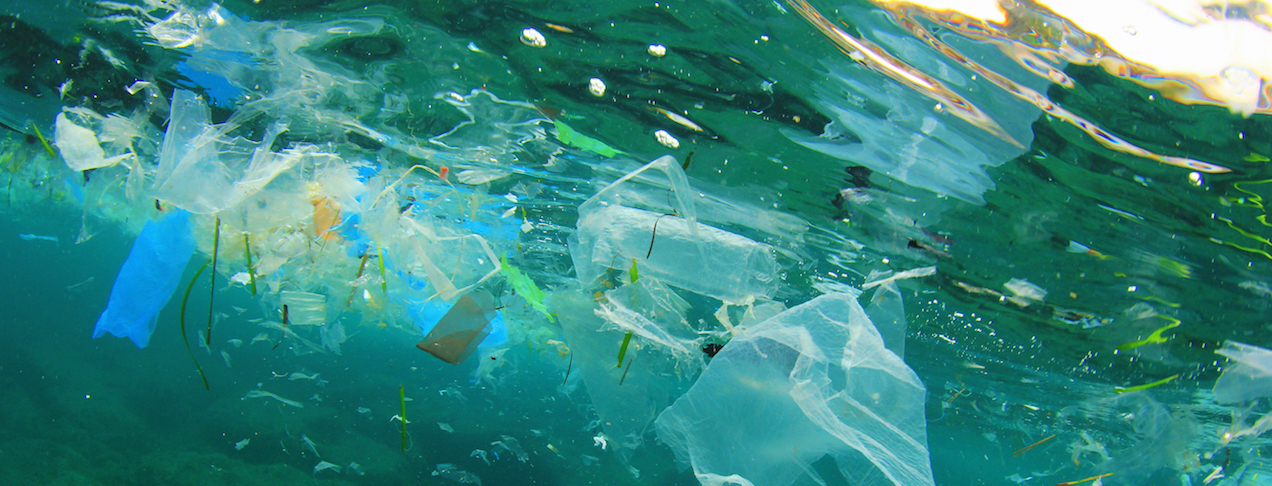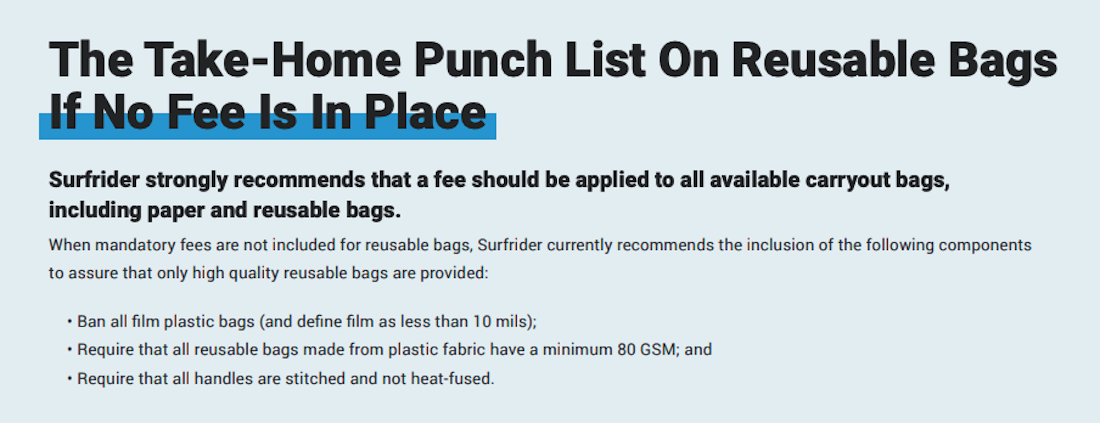
The Surfrider Foundation has been advocating for plastic pollution reduction, and plastic bag laws in particular, for more than a decade. To date, there have been more than 500 local plastic bag ordinances adopted in 28 states, and eight states have implemented statewide plastic bag bans to reduce pollution at the source. Chapter activists, community leaders, and legislators have been critical in passing these laws. To support their efforts, Surfrider has created multiple toolkits focusing on plastic bag laws, and we're pleased to announce the newest addition as an Addendum to the Plastic Bag Law Activist Toolkit.
The Addendum expands upon the How Should “Reusable Bag” be Defined? section of the Plastic Bag Law Activist Toolkit. This definition is especially important if there is no fee mandated for reusable bags because it sets a minimum standard for bags that can be given away for free at checkout. Failure to define “reusable bag” properly sets up loopholes that can allow for the distribution of inexpensive and poorly made reusable bags, which confuse customers and are treated the same as single-use. The Addendum also highlights various reusable bag definitions adopted by cities and states thus far, best practices, other components to consider when defining “reusable bag,” and a summary of life cycle assessments looking at single-use bags.

The Addendum builds upon the Plastic Bag Law Activist Toolkit (released in 2019), which delves exclusively into the details of best practices for drafting plastic bag laws. It also provides a comprehensive look at the harms of plastic carryout bags, recommended ordinance structures, important clauses to include, effectiveness data, how to spearhead a community movement, and the threat of preemption.
Plastic bag laws are proven to be effective in reducing single-use plastic litter that harms our coastal and marine environment. The goal of these resources is to empower advocates with a deeper understanding of the intricacies of plastic bag laws, so they are better prepared to fight against plastic pollution and implement meaningful solutions.
